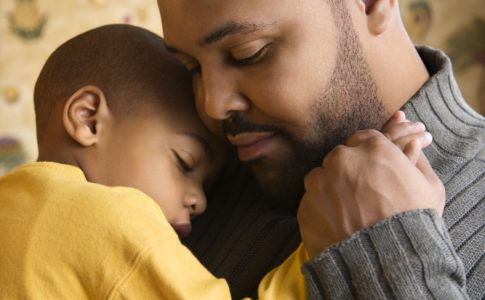 A smiling and happy child is what every parent strives to behold. Solo parents are no different in this regard, aspiring to give their children everything they never had, and more. Where all parents struggle with the concept of a happy child vs. a healthy child, solo parents are faced with an added unique emotional challenge.
A smiling and happy child is what every parent strives to behold. Solo parents are no different in this regard, aspiring to give their children everything they never had, and more. Where all parents struggle with the concept of a happy child vs. a healthy child, solo parents are faced with an added unique emotional challenge.
Because of the loss or absence of a parent, solo parenting often results in overcompensation and rescuing. The latter term refers to any attempt to prevent the child from experiencing pain or suffering, even when one or both are necessary for growth and development. An example of rescuing would be denying a child the necessary time and space to grieve. For children who have lost a parent to death, divorce, etc., or have simply experienced the void of an absent parent, grief is a process which—though painful—is necessary for their emotional development, psychological well-being and personal growth. To prevent this process in their childhood is to stunt them in adulthood.
Overcompensation occurs when solo parents feel a sense of guilt or responsibility and try to make up for the situation with material excess, technological distraction or best-friending—crossing emotional and psychological parent-child boundaries by blurring the lines of parenting and friendship. These processes of overcompensation and rescuing can become enabling and emotionally handicapping styles of parenting. Though the child may be temporarily happy, the end result is a failure to launch due to what is known as the perversion of parenting.
Dr. Carl Andersen, founder of the Center for the Study of Addiction & Recovery at Texas Tech University, once stated, “The perversion of parenting is to believe it is your job to raise a happy child. No. That is not your job. Your job as a parent is to launch a healthy adult.”
In terms relating to addiction, this perversion of parenting is referred to as enabling. It creates and perpetuates the perfect environment for active addiction—as well as other forms of mental illness. By denying a person emotional and psychological development, preventing natural consequences –necessary for acquiring emotional intelligence, psychological resiliency and personal growth– enabling breeds dysfunction.
But the bottom line it the same: grief and emotions that arise out of loss are necessary. Shielding our children from appropriate feelings is detrimental to their emotional growth. Healthy children need to feel what they feel. And when they need help and support to process these feelings, we can get them that help. Then their happiness will be genuine, and they will be equipped to lead more fulfilled lives.






